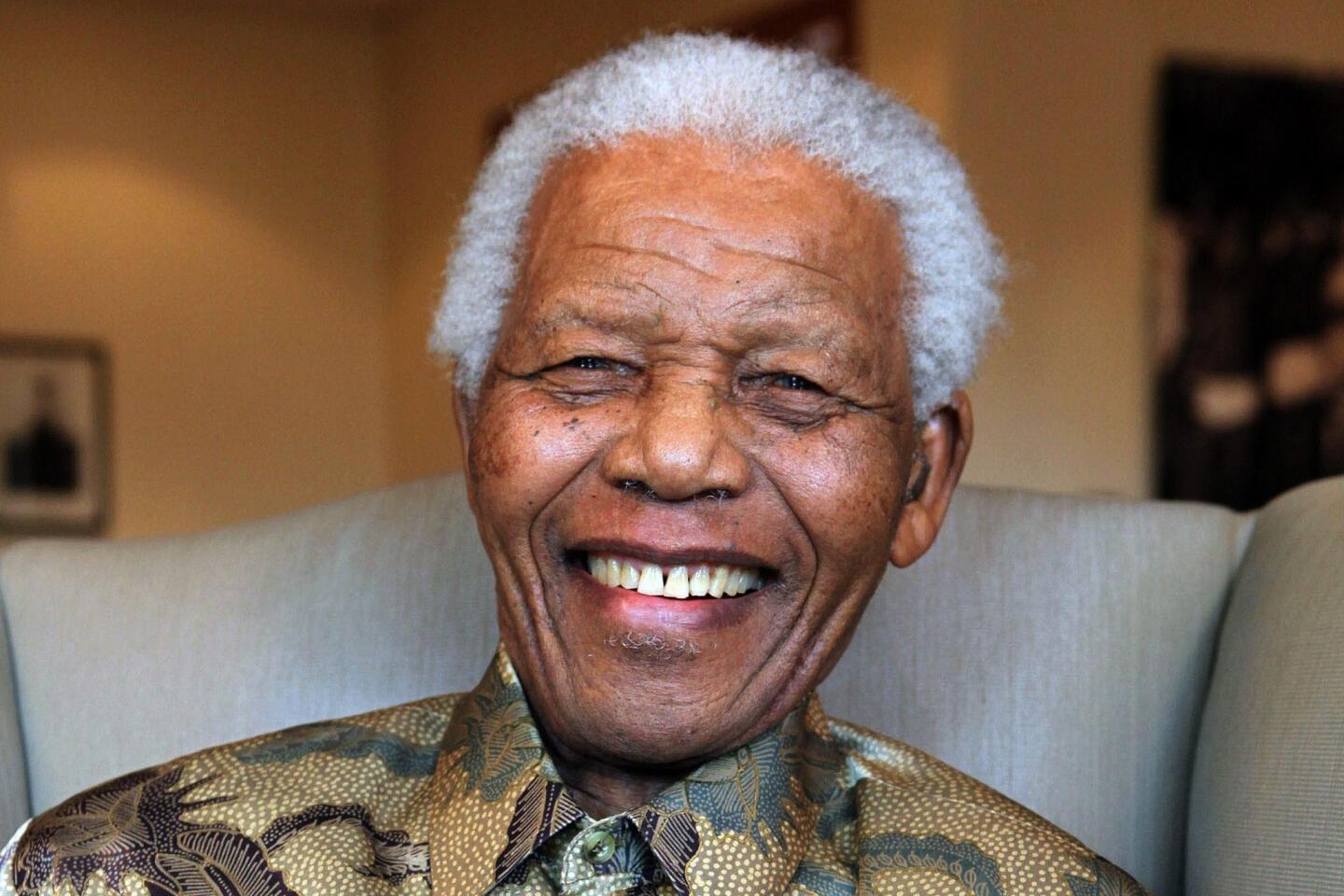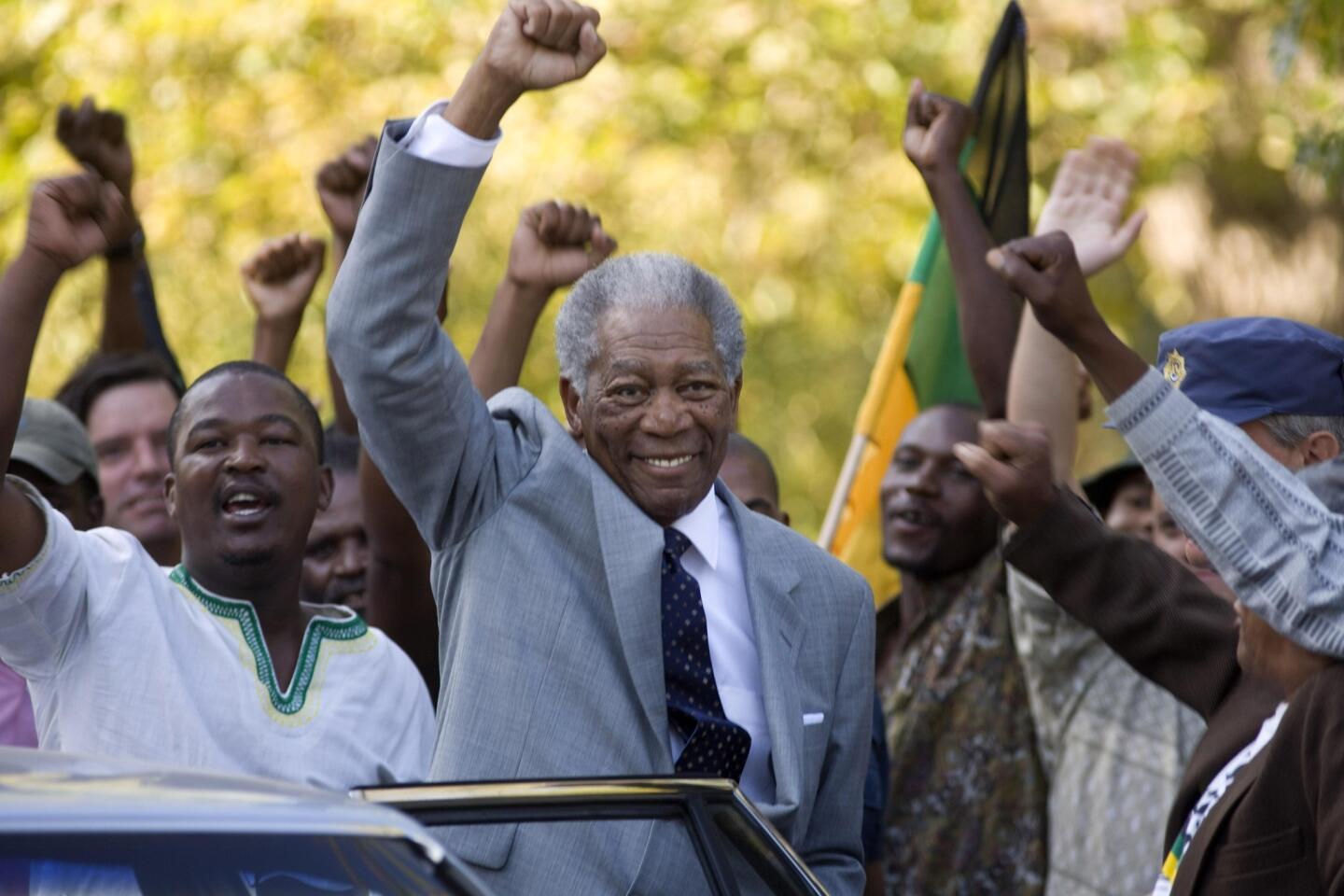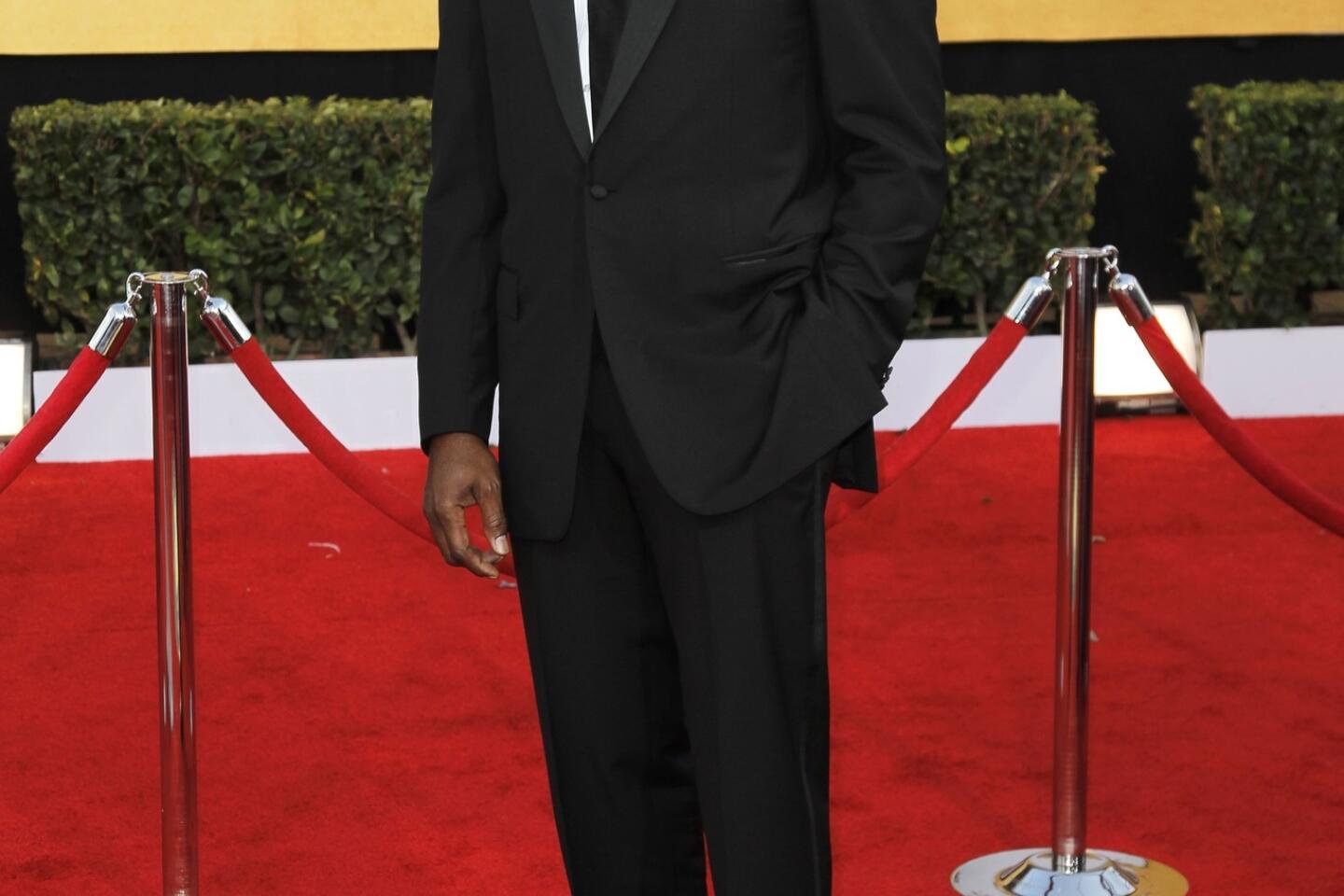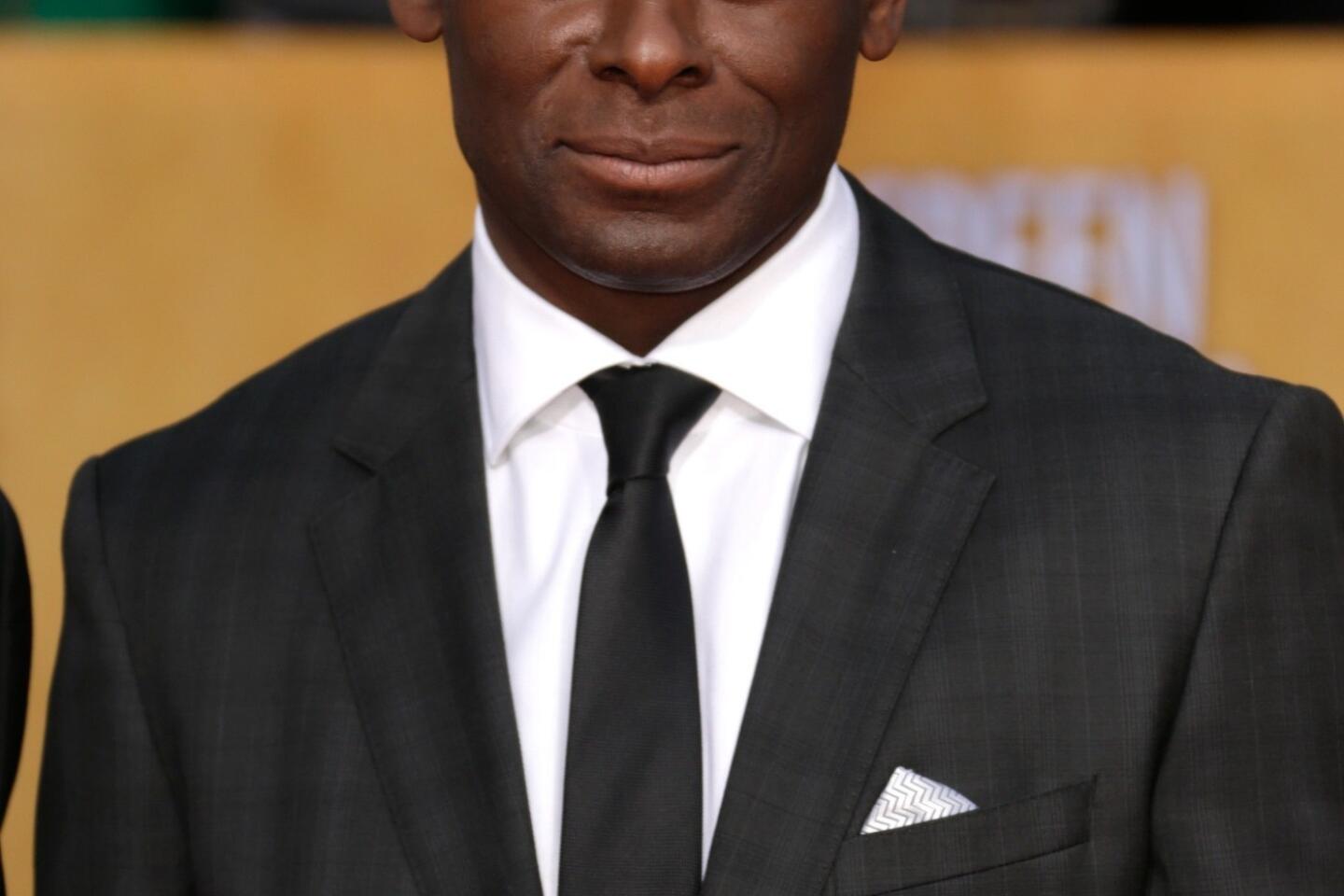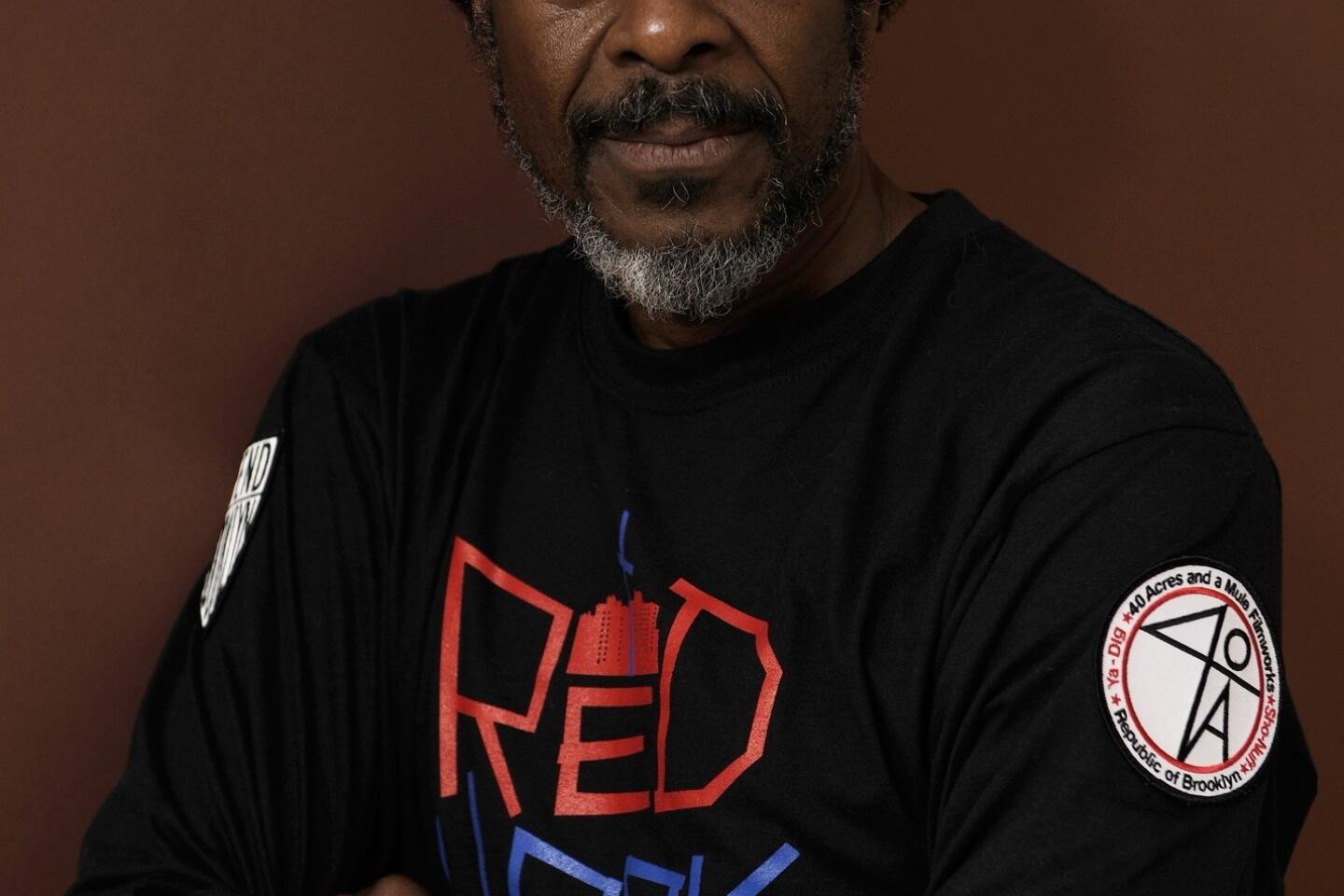U2 talks of new album in the works, Nelson Mandela
NEW YORK — Bono took a look around the cluttered recording studio, filled with Coke bottles and laptops and vinyl records, and turned to a reporter.
‘I’m not sure where we put the crack pipe,” he deadpanned, pretending to riffle around a coffee table as he also poked at the band’s workaholic image. “We usually leave it out for guests.”
A moment later the U2 frontman had cranked up a track from the band’s work-in-progress April album, an anthemic number about leaving one’s hometown titled “Invisible.” As the song played, he spiritedly played air guitar to it, also belting along with the track’s vocals, so that, in effect, Bono was performing a duet with himself.
FOR THE RECORD:
U2: An article about the band U2 in the Dec. 19 Calendar section misspelled the last name of drummer Larry Mullen Jr. as Mullens. —
The 53-year-old rock star’s self-mocking turn is enjoyably at odds with his self-serious public image, a sign of an icon who knows when not to be iconic. But similarly surprising is his approach to the music, a kind of boyish giddiness suggesting that, even after 12 studio albums and thousands of shows, that’s really what matters, perhaps more now than in a long while.
PHOTOS: Actors who’ve portrayed Nelson Mandela on screen
After years of being known as much for activism as rock ‘n’ roll — the day after the studio session, Nelson Mandela will have passed away, and an essay from Bono recollecting his impressions of the South African leader and friend will have materialized on Time.com — U2 had perhaps its most commercially disappointing album in decades with 2009’s “No Line on the Horizon.” They also worked on some aborted projects that led to just one new studio album in the past nine years. So now they’re shaking things up.
The band, which of course also includes guitarist Edge, bassist Adam Clayton and drummer Larry Mullen Jr., came up with the concept of a collection of songs told partly from the perspective of an innocent and partly from a seasoned veteran. And they brought on the electronic dance music producer Danger Mouse to help them craft it.
Told that some fans were still puzzling over how that collaboration would work, Edge, 52, laughed. “I think we’re still figuring that out ourselves,” he said.
On this December evening the band moved between studio rooms. In one, engineers tried different mixes as Bono sang along and gave notes in equal proportion. In another, Mullen, Edge and several others were tinkering with some rhythms. “You’re seeing a little bit of creativity as it happens,” Mullen said. “Like penguins in the wild.”
PHOTOS: Nelson Mandela through the years
But the first salvo in the Irish megagroup’s latest musical phase has already happened. U2 recently released its first new song in nearly three years, “Ordinary Love,” an ode to Nelson and Winnie Mandela that appears on the soundtrack to Justin Chadwick’s newly released biopic, “Mandela: Long Walk to Freedom.” The song was nominated for a Golden Globe last week and is likely to get an Oscar nod next month.
“Ordinary Love” is a throwback, mid-tempo number that would not have been out of place on one of the band’s 1980s albums, and a song that walks the line, as it has for U2 so many times before, between the personal and the political. “We can’t fall any further if we can’t feel ordinary love,” it goes, narrating the tremulous relationships both among a citizenry and its symbolic First Family.
“It’s a plea for common decency among the people who’ve been oppressed,” Bono said at dinner earlier in the evening. “And it’s a plea for common decency in a marriage as it starts to fall apart.”
U2 hoped to portray the complexity of the Mandela relationship, according to Chadwick, who called it “a film that deals with apartheid but is really about love.”
OBITUARY: Nelson Mandela, anti-apartheid icon, diesThe film’s producer, longtime Mandela friend Anant Singh, sent Bono love letters that Nelson Mandela wrote to his wife from his prison cell on Robben Island, and the band set about turning its poetry into lyrics.
“We thought it should be a love song, a very human song. Not epic, not earnest in dealing with world-changing political shifts,” Edge said, “but personal in two people trying to hold on to one another in the face of dreadful mistreatment and heartbreak.”
Mandela was a huge influence on the members of U2, who played early anti-apartheid shows. Bono and Edge said that, though it was his political leadership that the world knew Mandela for, in person it was Mandela’s dry wit that would win you over.
“He would always turn on the humor, mock you a little and then mock himself. Mostly himself,” Bono said.
And if he wanted the rock star to undertake a cause, he would convince him in an unconventional way — with a little reverse psychology.
“He’d say ‘You shouldn’t do this; it’s a complete waste of your time,’” Bono recalled, rendering a spot-on impression of the South African icon’s mellifluous, halting speech pattern. “‘A man like you, with such responsibilities? Why would you want to be at a concert to celebrate an old man like me?’” Bono laughed. “And suddenly you were putty in his hands.”
Added Edge: “That’s his philosophy of dealing with the world.”
It’s a similar approach for the band these days. A natural extrovert, Bono in person comes off as much as a comic presence as an activist. “If you have any sense as a band that you could be not just a sop but a salve, you have a moral duty to respond,” he said, when asked if the group’s activist reputation ever grew burdensome. “And that,” he added, with a poker face, “can make you a total pain in the” butt.
He also quipped to Edge: “The whole thing about being in a band is like being on an oil rig. Just a lot of men. We really need to change that.”
Edge, in his trademark knit hat and biker-esque facial hair, volleyed back, “I told you we should have had a girl drummer.”
FULL COVERAGE: Nelson Mandela (1918-2013)
Dressed in a green military cap, black jeans and several layers to ward off the New York chill, Bono was standing in a soundproof room filled with engineers. Every once in a while someone handed him a microphone. Bono reaches for a microphone the way a baby reaches for a lollipop, with the easy sense he knows exactly what to do with it. Barely pausing his conversation with a reporter, he began singing, rocking slowly back and forth as his facial muscles clenched. Then in a musician equivalent of a no-look pass, he handed back the mike to an engineer as he continued bantering with a reporter.
“Not to sound pretentious—not that it’s ever stopped us before,” he said as he described the new record.
Oh yes, about that record. From the few tracks heard that night, it has traces of the Clash and Sex Pistols and Kraftwerk — “stuff we were really listening to when we were younger,” said Bono. But it also comes laden with soul and old-school R&B, genres the singer said he and friends were listening to in the 1970s, only “once punk came along, no one admitted it.” It, too, walks the line between the political and the personal, with one song title connoting a difficult period but really referring to a personal trauma.
Thematically, the album will center on the collision between hard-earned wisdom and youthful hunger. For present-day U2 — sometimes branching out in new directions even as it so often returns to its roots, and still vital even as it stands just a few years shy of its 40th anniversary — that tension couldn’t be more fitting.
The band has reportedly been entertaining corporate suitors for a Super Bowl ad to introduce the new record. But Bono waved aside a question about those plans. There’s still work to be done, an album to fine tune, all-night sessions that mean dinners eaten directly off sound boards.
So engineers continued to tinker with Bono’s vocal chord-straining falsetto, the sound that has defined him and U2 as far back as albums like “War” and “The Unforgettable Fire.” “There’s just something about a bloke who sings like a chick,” Bono cracked to a reporter. And then practically in the same motion, he turned, took the mike and unleashed another one of those vocals.
More to Read
Only good movies
Get the Indie Focus newsletter, Mark Olsen's weekly guide to the world of cinema.
You may occasionally receive promotional content from the Los Angeles Times.
